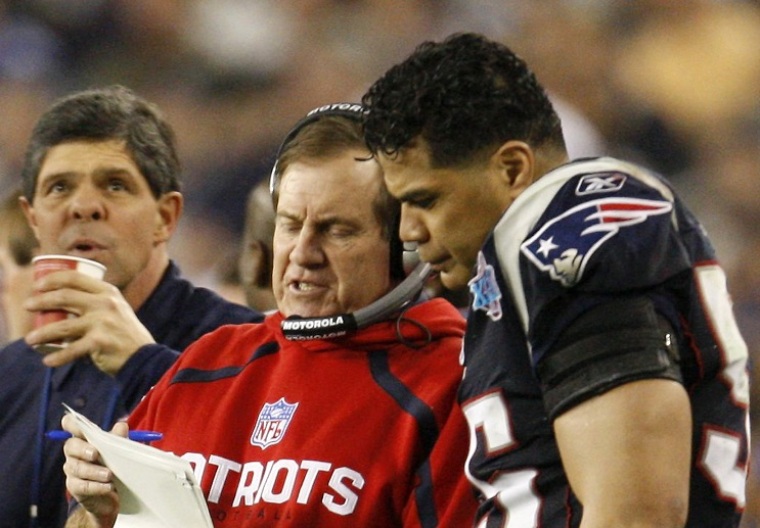Super Bowl surprise: NFL players suffered brain injury from playing football as tykes

BOSTON (Christian Examiner) – As the world readies to watch the Seattle Seahawks and New England Patriots battle for the Lombardi Trophy on Sunday, researchers at Boston University released a study showing players in the National Football League who played tackle football before the age of 12 were more likely to have serious brain impairment resulting in thinking and memory problems, than do peers who started playing when they were older.
The news comes amid growing concern about concussions at the professional and collegiate levels.
The public debate has been fueled by such high profile cases as former San Diego Charger Junior Seau, who committed suicide while in retirement in 2012, and collegian Kosta Karageorge, a reserve lineman with the Ohio state Buckeyes who killed himself with a shotgun in November 2014. Autopsies confirmed Seau suffered from chronic traumatic encephalopathy from football concussions, and Karageorge had complained about confusion and headaches from concussions.
The study looked at 42 former NFL players using clinical tests to measure how memory recall and intelligence were impacted by the age at which the players first played tackle football (which researchers termed "age of first exposure," or AFE).
Essentially the group was divided into those who played contact football before the age of 12 and those who were 12 or older. This delineation was based on the science of brain development and data showing the time between ages 10 to 12 is a critical period for brain growth.
They were given a battery of tests to check executive function, memory, and estimated verbal IQ.
The researchers thought they would find a correlation between poorer cognitive performance and the longer the career a player completed. But, when the data was analyzed, they discovered those "playing fewer years in the NFL ... performed worse on all measures."
The investigators found the key factor in explaining the difference in cognitive performance was not related to duration of play or even the level of education attained, but the age at which players first experienced contact football.
In other words, "repeated head impacts through tackle football prior to age 12, during a key period of brain development," resulted in degraded mental performance later in life.
"It was previously thought that greater plasticity in the developing brain would support better recovery following injury," according to the study summary. "Recent evidence indicates that children and adolescents are more vulnerable than adults to poor outcomes and prolonged recovery from concussions. Furthermore, concussions in youth may negatively affect social development and educational success."
Remarkably, the literature reviewed for this study indicates "youth football players ages 9-12 typically experience 240, and up to 585, head impacts per season at magnitudes that parallel those experienced by high school and collegiate football players ... ."
"With millions of youth athletes participating in contact sports annually," the scientists said, "including 4.8 million football players, the long-term consequences of brain trauma in youth sports are a growing public health concern."